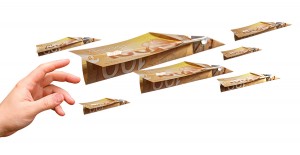How to avoid travel fees
Tired of being nickel-and-dimed to death when you travel?
Advertisement
Tired of being nickel-and-dimed to death when you travel?

Share this article Share on Facebook Share on Twitter Share on Linkedin Share on Reddit Share on Email